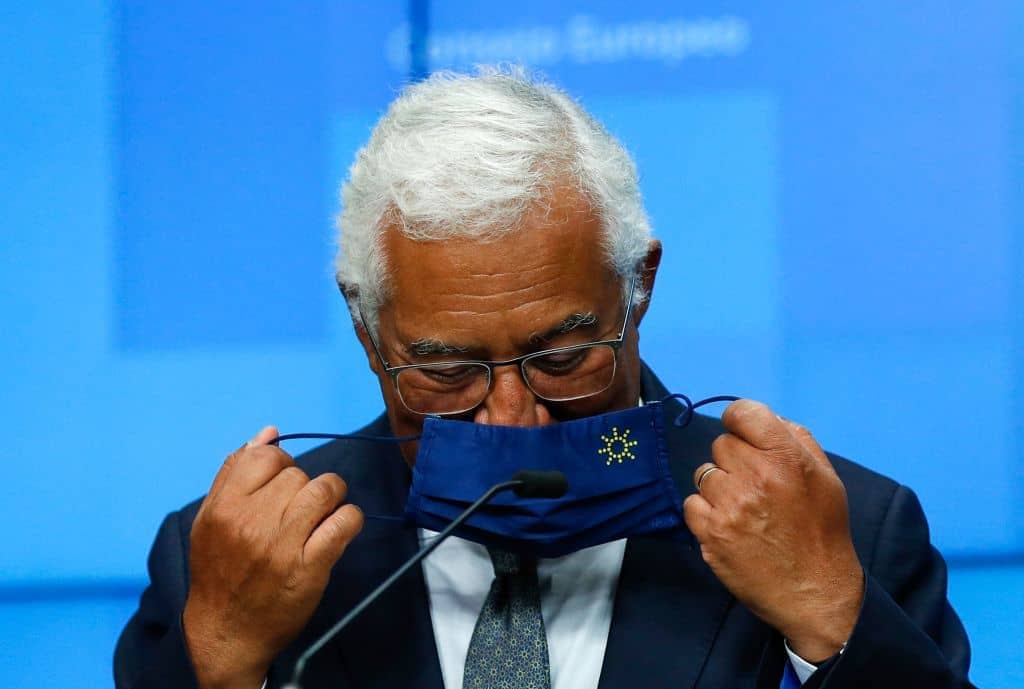Portugal has once again been plunged into a political crisis: the country is facing a snap election after its socialist-led government failed to pass its budget in the National Assembly yesterday. António Costa, who has led the country’s minority government since November 2015, was brought down by the refusal of the PCP (communist party) and the Bloco de Esquerda (left block) to back his budget.
This latest upheaval comes at a particularly bad time for Portugal, which is attempting to return to normality following 18 months of Covid lockdowns and closures. Now, the country is once again in political limbo: an election is likely to take some months to carry out, and what happens to the billions of pounds in aid from the European Union remains unclear.
The current crisis is a result of political and economic failings. Yet while Costa is the most recent fall guy, is this budget debacle really his fault? The crux of the matter is that the country’s economy has suffered so many shocks that it makes the management of it almost impossible for either the centre-left or centre-right without introducing major structural changes. Such reforms would lead, in the short term, to a spike in social costs and a decline in popular support; unsurprisingly, none of the country’s political leaders are willing to take the risk.
Portuguese who had lost their jobs because of the 2010 crisis reinvented themselves as drivers of tuk-tuks and local accommodation hosts
Ultimately, Portugal’s troubles stem from the collapse of its empire, which historically supported the country’s economy. During Portugal’s golden age, the country got rich on exploiting the natural resources of Brazil and its African colonies. But it has struggled to find a suitable replacement since that source of income dried up following the 25 April revolution in 1974.
In the years since that left-wing led upheaval, Portugal has repeatedly found itself in deep economic trouble. Forced nationalisations and the withdrawal of foreign investment following the revolution meant that the country lurched from one crisis to another. Membership of the EEC in 1986 (known locally as the ‘rich club’ of Europe) temporarily helped stop the rot with massive investment of European funds being spent on developing the country’s infrastructure. The funds, however, did not stop after the restructure of the economy, which continued to be characterised by a bloated and inefficient state sector, huge amounts of red tape, and employment laws that heavily favoured workers over employers.
A decade of centre-right rule led by Thatcherite supporter Cavaco Silva during the 1980s made some progress in liberalising the economy and privatising several of the state assets. Yet by the time he left office, change was far from complete. Inevitably there followed a return to the economic status quo.
The economic crisis that reached Portugal in 2010 led to a 78-billion-euro (£65billion) bailout from the EU and IMF in 2011 that saved the Portugal from default on its debt burden. A centre-right government led by Pedro Passos Coelho tried to implement a programme of austerity demanded by the Troika that would have further liberalised the economy.
A central feature of the government was the rolling back of some of the social security and workers’ rights that had been implemented in the aftermath of the 1974 revolution. Enough progress was made to keep Portugal’s creditors happy without bringing about much needed deep reform of the economy. It was a careful juggling act, but the result was that the Portuguese economy was just as vulnerable as ever to a recession.
In a climate where governments across Europe that had implemented programmes of austerity were crushed at the polls, the centre-right in Portugal surprised many people by emerging as the largest block, but shy of an overall majority, in elections held in 2015. Then came the start of António Costa’s beautiful friendship with the parties of the far-left, which led to him being able to form a minority government with their support from outside the government. What followed was rapid abandonment of austerity and a return to socialist economics. Costa soon became the poster boy of the centre-left in Europe as Portugal’s economy seemingly improved.
Yet these good times proved to be short lived. Portugal’s recovery was largely down to a boom in the tourist sector with the country selling itself as a low-cost destination for both the city break and beach holiday sectors of the industry. Lisbon and Porto were rapidly transformed into giant Airbnb hubs and the Algarve was saturated with mass tourism.
Portuguese who had lost their jobs because of the 2010 crisis reinvented themselves as drivers of tuk-tuks and local accommodation hosts. But away from the tourist sector, there was little change in the wider economy: there were virtually no reforms or moves to address Portugal’s chronic corruption problems. And so, when Covid struck, the tourist sector collapsed – taking with it much of the rest of the Portuguese economy.
Yet it is not all bad news for Portugal, a country which has one of the largest gold reserves in the world. Accumulated in payment for its trade in wolfram with Germany during World War 2, it has sat largely unused in the vaults of the Bank of Portugal since 1945. The gold has been kept by both the country’s dictators and democratic leaders for use on a rainy day. Much of it is of questionable origin. The sale of the gold, however, could provide a safety net to help alleviate the pain of pushing through much needed economic reforms in Portugal whatever the composition of the government. In the wake of the collapse of Portugal’s socialist minority government, has that time finally come?






Comments